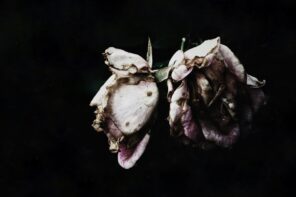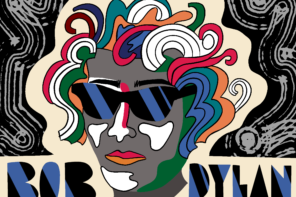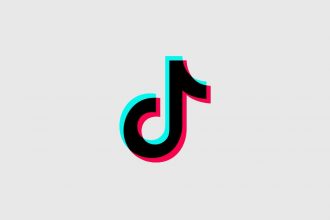In the 21st century, the practice of producing and distributing your own music is easier and more widespread than ever, so it’s important to have an outside authority telling you whether any of this music is good. Just kidding. However, I have it on very good authority (my own incredible taste) that Pitchfork generally knows what they’re talking about. As the 2010s come to an end, Pitchfork has released its list of the top 200 albums and songs of the decade. It’s filled with the catchy music you would expect, but underneath all the clear pandering to the uninventive music twentysomethings are obsessed with is a message about the importance of meaning.
In opposition to the classic rock of the 80s, heavy with tantalizing guitar riffs but with lyrics about absolutely nothing, music today has become a bit more basic in terms of musical talent used, but with incredibly deep lyrics. Although this doesn’t necessarily correlate to the quality of music, it does represent a change in what listeners are generally relating to. In a letter released to the public, Pitchfork editor-in-chief Puja Patel detailed the process of selecting the top 200: “we wanted to be clear-eyed about the recent past while still looking forward; we wanted to celebrate innovation and pay proper tribute to modern classics.” The lists they compiled end up doing just that: paying attention to the hard work artists have done in this decade, while maintaining a Pitchfork standard of excellence and dedication to good, classic music. But honestly, who has time to go through all those albums? Without further ado, here are the Pitchfork top 200 albums of the 2010s… Abridged.
Albums
200: Ratking: So It Goes (2014) – 101: Chromatics: Kill for Love (2012)
The list’s latter 100 include pop masterpiece Lady Gaga: The Fame Monster (2009) at 151, and Tyler, the Creator: Flower Boy (2017) at 120, showing that they’ve clearly taken into account what people consider both genuinely good, catchy, popular music. And underground gems like 130: Tame Impala: Lonerism (2012) and 140: Parquet Courts: Sunbathing Animal (2014) speak to a kind of classic, fun rock that has stayed in style since the genre’s inception. But the first half of this list maintains an overwhelming tone of allegiance to the indie genre. Many of these albums, like 122: Snail Mail: Lush (2018) and 152: Arctic Monkeys: AM (2013), focus on the distinct attitudes of adolescence. Who amongst us doesn’t see M83: Hurry Up, We’re Dreaming (2011) at 134 and immediately hear the intro to “Midnight City”? Or see Daft Punk: Random Access Memories (2013) at 112 and start dancing along to “Get Lucky”? There’s also a nod to popular rap, with 166: Nicki Minaj: The Pinkprint (2014) and 137: A$AP Rocky: LIVE.LOVE.A$AP (2011). The people at Pitchfork seem to have a particular brand of pretension that celebrates the self-released album while still favouring the polished nature of a big label.
ARVE error: Mode: lazyload not available (ARVE Pro not active?), switching to normal mode
100: Ariana Grande: Sweetener (2018) – 1: Frank Ocean: Blonde (2016)
The top 100 albums of the 2010s include many distinct nods to radio culture, what with the inclusion of albums like Sweetener, 92: JAY-Z / Kanye West: Watch the Throne (2011), and 59: Taylor Swift: Red (2012). There are a few indie offerings here, including Mitski’s incredible Puberty 2 (2016) at 30, Father John Misty: I Love You, Honeybear (2015) at 72, and Vampire Weekend: Modern Vampires of the City (2013) at 7. But more than anything, these top 100 albums speak to the overwhelming transformation the genre of rap has taken in the past decade. There are artists like Kanye West who have taken advantage of the last ten years to make otherworldly strides in their careers. There were self-produced artists in 2011 who have gone platinum in 2019. There’s Cardi B: Invasion of Privacy (2018) at 73. Just to prove that this list isn’t focused just on lyrics, let’s look at the first sixteen lines of that album’s “Drip”. It’s one beautiful quatrain:
Came through drippin’ (drip, drip)
Came through drippin’ (drip, drip)
Came through drippin’ (drip, drip)
Diamonds on my wrist, they drippin’ (ice!)
… and then that repeats three more times.
ARVE error: Mode: lazyload not available (ARVE Pro not active?), switching to normal mode
When it gets to the top ten albums, Pitchfork again shows its attachment to the lyrical styles that have developed in this decade. The tenth album is Frank Ocean: Channel Orange (2012), the artist’s smash studio debut. In its description, the distinct queer voice of the album is mentioned. As an unprecedented decade for LGBT rights, the 2010s allowed for voices that had previously been silenced to come forward and shine. After D’Angelo & the Vanguard: Black Messiah (2014) at number nine, the amazing Robyn: Body Talk (2010) at eight, and the aforementioned Vampire Weekend: Modern Vampires of the City (2013) at seven, comes number six: Solange’s A Seat at the Table (2016). This album speaks with the unapologetic voice of a black woman who lets herself get angry, then heals herself with words.
After a nod to 90s singer-songwriters with Fiona Apple: The Idler Wheel… (2012) at five, the list turns once more to the rap genre to round out its list. At number four is Kendrick Lamar: To Pimp a Butterfly (2015), the lyrical labyrinth that changed rap forever. Then, for the ladies, comes Beyoncé’s self-titled album (2013) at three. The theme of wall-to-wall bangers continues with number two: Kanye West: My Beautiful Dark Twisted Fantasy (2010). Undisputedly Kanye’s best album (so stop disputing me), MBDTF remains as influential and relevant today as it was at the beginning of the decade.
ARVE error: Mode: lazyload not available (ARVE Pro not active?), switching to normal mode
Pitchfork’s number one album of the 2010s, Frank Ocean: Blonde (2016), is touted as a quintessentially American album at a time when America lost its sense of self. The spirit of freedom is echoed in Frank’s varied style, smooth transitions, and memorable lyrics. In a turbulent decade marred by disagreement, we can all agree on the importance of music as a uniting factor. That, and the genius of Frank Ocean. In summary, the Pitchfork top 200 albums of the 2010s gave us palpable evidence of the deep changes popular music has made in the past decade. Although artists like Kanye have taken the opportunity to bring depth and layering to their lyrical masterpieces, others like Frank Ocean have taken the opportunity to simplify, writing about true human experience in its rawest form, as it was indeed in this decade.








